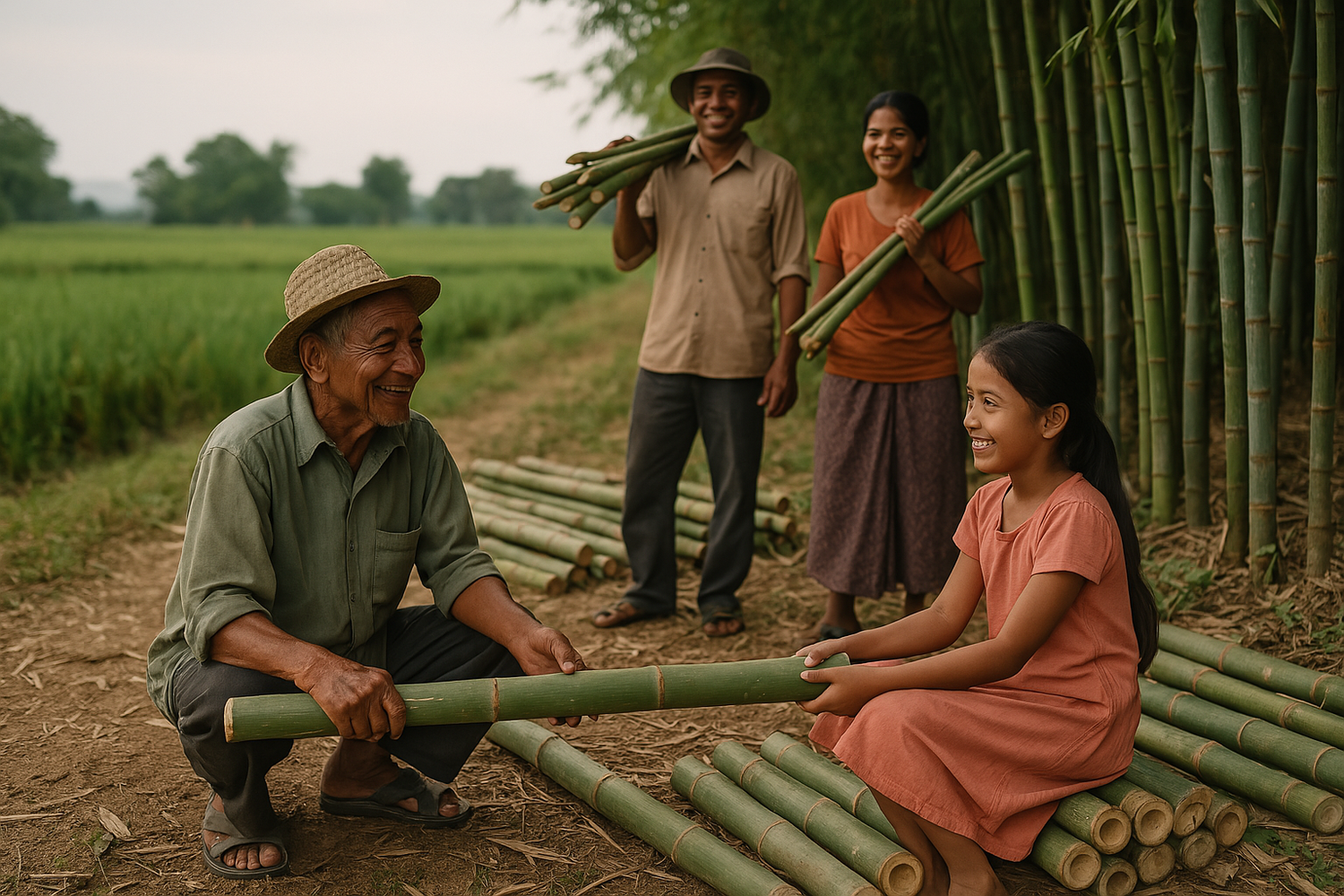At Bamboostan, we believe in the power of collaboration. We source our bamboo from a network of dedicated farmers and producers, and their stories inspire us every day. Today, we want to shine a light on the transformative impact of bamboo farming and production on rural communities around the world.
A Plant with Purpose: Bamboo's Role in Rural Development
Bamboo is more than just a versatile and sustainable resource; it's a powerful tool for empowering rural communities. Unlike many traditional crops, bamboo thrives in a variety of climates and requires minimal resources to grow. This makes it particularly well-suited for rural areas, where fertile land might be scarce and access to other economic opportunities limited.
Here's how bamboo farming is creating a positive social impact:
- Job Creation: Bamboo cultivation generates employment opportunities in rural villages. From planting and harvesting to processing and transportation, the bamboo industry creates a demand for skilled and unskilled labor, providing a much-needed source of income for local communities.
- Economic Empowerment: Bamboo farming empowers individuals and families, particularly women, by providing them with a source of independent income. This financial independence can lead to improved living standards, education opportunities, and a greater voice within the community.
- Sustainable Livelihoods: Bamboo is a renewable resource that can be harvested year after year, ensuring a long-term source of income for farmers. Sustainable farming practices also help to protect the environment, ensuring the resource remains viable for future generations.
- Infrastructure Development: The growth of the bamboo industry can lead to increased infrastructure development in rural areas. Improved roads and transportation networks can facilitate better access to markets, education, and healthcare services, further boosting the well-being of communities.
Beyond the Farm: The Ripple Effect of Bamboo
The positive impact of bamboo extends beyond the farm gate. Here are some additional ways it contributes to social development:
- Skilled Workforce Development: The bamboo industry requires a range of skills, from processing and crafting to marketing and management. This creates opportunities for training and skill development, empowering individuals to pursue careers within the bamboo sector.
- Preserving Traditional Knowledge: Bamboo cultivation often relies on traditional knowledge passed down through generations. By supporting bamboo farming, we can help preserve this valuable knowledge and ensure its continuity for future generations.
- Promoting Cultural Heritage: Bamboo is often deeply woven into the cultural fabric of rural communities. Supporting bamboo-based crafts and products helps to preserve cultural heritage and traditions.
A Shared Vision for a Brighter Future
At Bamboostan, we believe in the power of collaboration to create a positive impact. We source our bamboo from responsible farmers who share our commitment to sustainability and social development. By working together, we can empower rural communities, promote sustainable livelihoods, and create a brighter future for generations to come.
How You Can Get Involved
Looking to join the movement? Here are some ways you can contribute:
- Choose Bamboo Products: By opting for bamboo furniture, utensils, and other everyday items, you're supporting the bamboo industry and its social impact.
- Research Sustainable Brands: Look for companies like Bamboostan that prioritize responsible sourcing and fair trade practices.
- Spread Awareness: Educate others about the social and environmental benefits of bamboo.
Together, we can harness the power of bamboo to create a more equitable and sustainable future for rural communities around the world. Let's grow a brighter future, one sustainable choice at a time!




